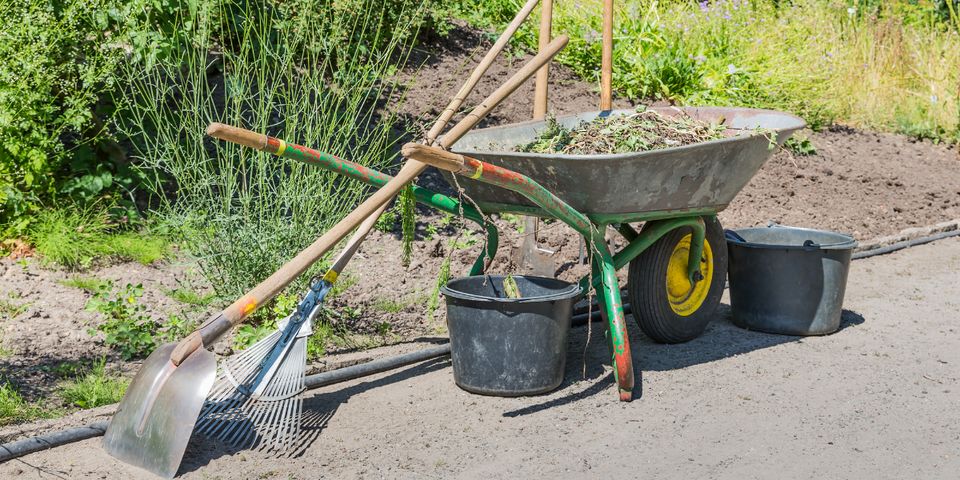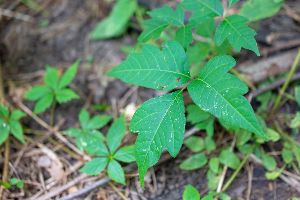3 Tips for Getting Rid of Poison Ivy in the Backyard

The old saying goes, "leaflets of three, let them be," but when you've got little ones in the household, poison ivy on your property isn't something you can ignore. Unfortunately, 85% of people have a reaction to this plant after exposure. The oily residue, known as urushiol, in the plant's leaves, stems, and roots causes an itchy, painful rash that can be incredibly uncomfortable for your family, especially little ones, and can require an allergy evaluation to determine the severity of the reaction. Once your child has received medical attention after exposure, you can turn your attention to ridding your yard of this invasive pest. Here's how to go about it.
How to Get Rid of Poison Ivy
1. Dress Appropriately
In order to keep your skin from coming into contact with the plant, it's critical that you wear the right clothing. Before starting, put on long pants, long sleeves, work boots, and heavy-duty rubber gloves. Be aware of gaps where your clothing could shift and expose skin. Some people duct tape their boots to the outside of the pants to protect vulnerable skin.
2. Choose Optimal Removal Conditions

The outdoor conditions will play a part in the efficacy of your efforts. While it can be easier to manage plant eradication during the winter when the plant has few leaves, herbicides tend to work better in the late spring and early summer when the plants are in a phase of growth. It's important to avoid plant removal on windy days to reduce herbicide exposure to other plants and the unpredictability of the wind when handling the leaves and stems.
3. Know What You're Fighting
Poison ivy isn't difficult to remove but requires some patience, tenacity, and education to ensure your eradication efforts are successful. Keep in mind that it may take three or four attempts to kill all the roots under the soil, as poison ivy is a tenacious plant that doesn't go easily.
You'll need a sharp trowel or shovel, shears or pruning tools to remove vines and branches, and herbicide to prevent future vegetation. Move slowly while you work and take extreme caution. Cut the plants at ground level, dig out the roots, and place everything carefully in a thick plastic bag. Next, spray what's left with an herbicide specifically designed for poison ivy.
If you believe the urushiol oil has touched your skin, wash the contaminated area with lukewarm water and soap right away. If you experience a severe rash afterward, schedule an allergy evaluation with your doctor, as reactions can worsen with repeated exposure.
For specialized pediatric care you can depend on, parents in Chester, SC, choose Mante Pediatrics. Dr. Ebenezer Mante leads the medical clinic with compassion and dedication to providing the highest level of care to the smallest members of your family. Dr. Mante offers allergy evaluations and the latest skin and allergy treatments for children experiencing everything from eczema to diaper rash. He is also experienced in performing ADHD evaluations and management, immunizations, unexpected illnesses, and injuries. To learn more about the variety of services this clinic offers, visit the website. To schedule an appointment, call (803) 385-2075.
About the Business
Have a question? Ask the experts!
Send your question

